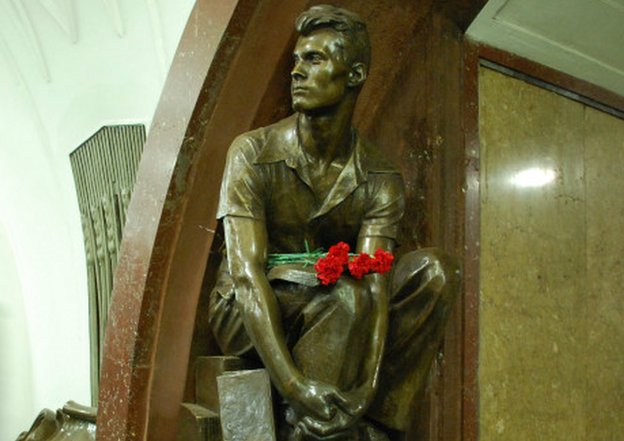The loss of life during both World Wars was tremendous for all sides. The Russians suffered huge losses during World War Two in their fight to regain Russian territory from the Nazis, as well as going on to invade and conquer Nazi Germany.
The sheer numbers of lost lives meant that it was impossible to commemorate every single Russian soldier by name. So across Russia there are many monuments dedicated to ‘Unknown Soldiers’, acknowledging the huge sacrifice they made for their country and people.
Now a new day of memorial, ‘the Day of the Unknown Soldier’ has been official declared in the country. The day will remember more than four million Russian soldiers who fought and gave their lives during World War Two.
Arkady Gidrat was one of those soldiers declared missing in action during World War Two and was never heard from again. Before the war, Arkadywas famous for being the Soviet Union’s high-jump record breaker. A 1937 sculpture of Arkady still stands at Revolution Square in Moscow, displaying his physical attributes and athletic ability as a high-jumper.
When broke out, Arkady volunteered to join the Soviet Army andwent missing in action in 1941, not long after the war had started.
Arkady left behind a wife and daughter, who continued to visit his sculpture and lay flowers at his feet in remembrance. Olga Gidrat, Arkady’s daughter remembers him well, yet was saddened that she had never been able to find out what happened to him, the BBC News reports.
To this day, volunteers are still uncovering the remains of the Soviet Army in key sites in Russia where heavy fighting took place. In 2000, volunteers digging on the outskirts of St Petersburg found two bodies of soldiers killed during the war. It was likely that they had been killed in fighting and left on the battlefield. One of the bodies had a paper identity tag, and with some deciphering the volunteers were able to make out the name of Arkady Gidrat. The paper tag was inside an ebony capsule, which was the Russian version of the dog tag. The paper also sent a message to his wife saying: ‘Live happily, my dear’.
Olga, was delighted to hear from the volunteers and that he had been found. She could finally give him a proper burial with military honours. He is now buried near St Petersburg.
The volunteers continue their work to this day, as a commitment to giving the soldiers back their identities.
